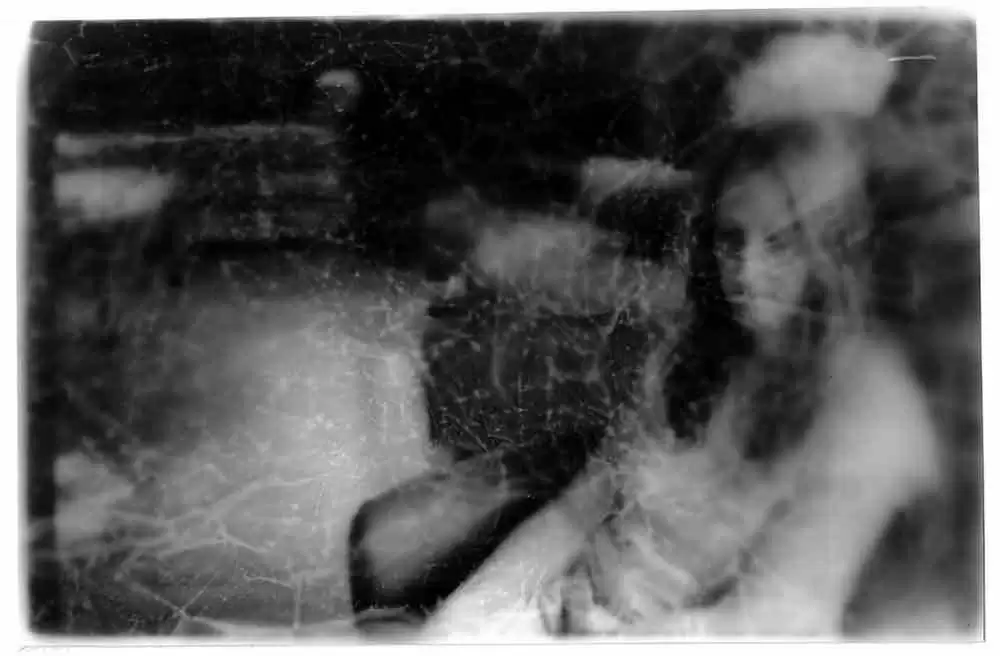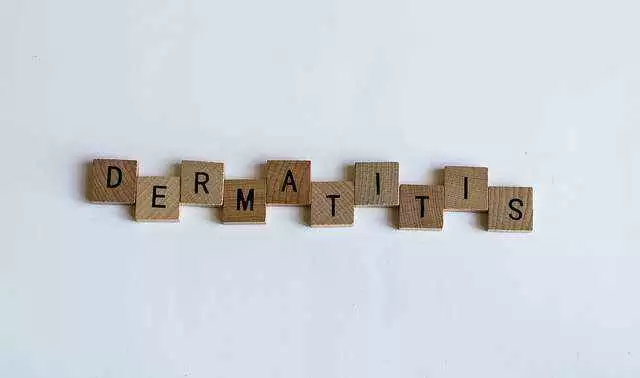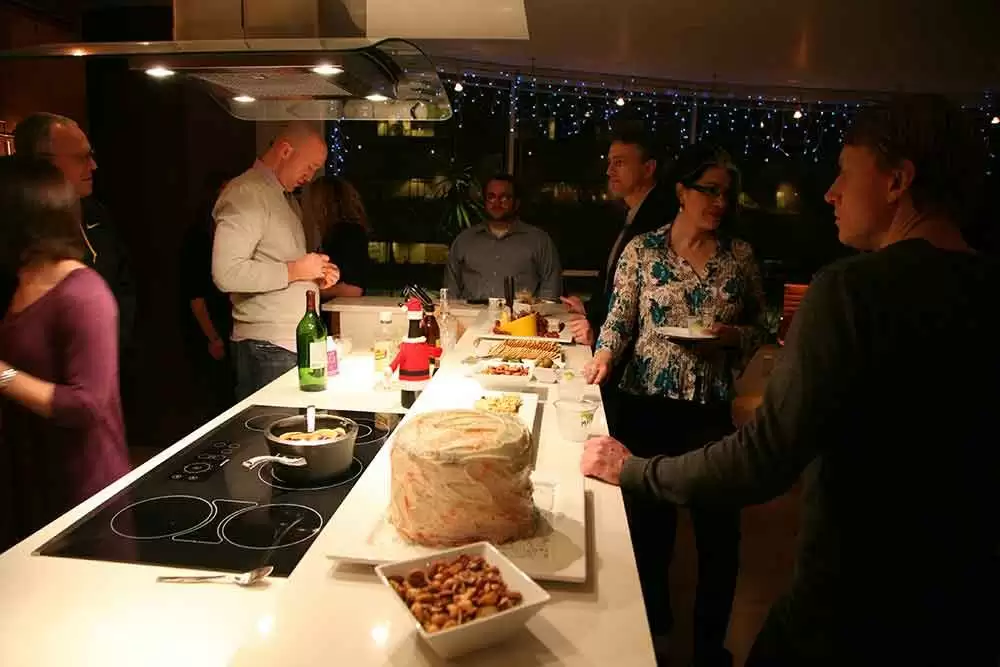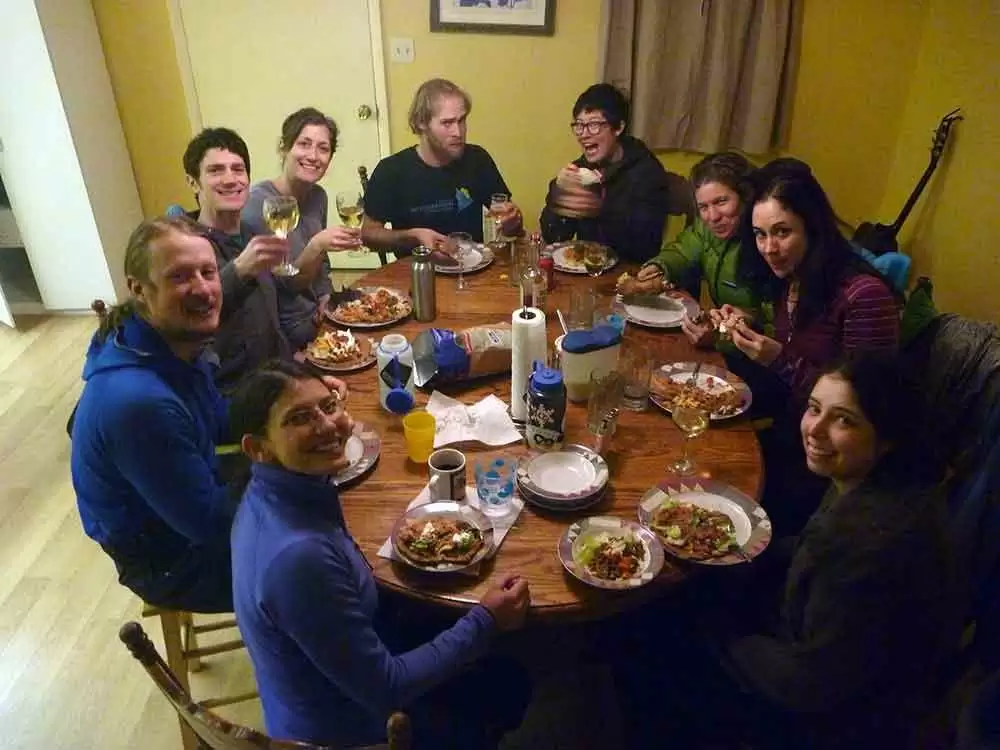
Celiac.com 07/12/2019 - "I think you might be reacting to gluten." How many times do you want to say that to loved ones who are suffering with familiar symptoms? Many of the people I interviewed in my "Social Aspects of Celiac Disease Survey" on Celiac.com shared that they observe signs of celiac disease or gluten sensitivity in family members, but are met with a wide range of (often negative) responses when suggesting symptoms may be gluten-related. Those of us who live with the disease, and who are well informed about the many manifestations of gluten intolerance "just know" that other family members may be reacting to gluten. We hear our family complain of indications ranging from joint pain, migraines, swelling, brain-fog, gas, bloating, back pain, leg numbness, and gastro-intestinal issues (Fasano & Flaherty, 2014), to name a few. There are actually over 200 symptoms of gluten intolerance according to Wangen (2009, p. 37). We also know how positively the body responds to a gluten-free diet and often want to share our knowledge and secret to thriving health with our family members. What kind of kinfolk would we be if we didn't? On the other hand, we don't want to become "that person" who attributes every malady to gluten (though scientific studies exist to support that premise such as work done by Fine (2003) who estimates that roughly 95 million Americans react negatively to gluten, and Fasano et al. (2015) who estimates that one third of Americans have gluten sensitivities not detectable from serological testing.
Let's be clear—we're not trying to give medical advice. We are just offering our hard-earned knowledge to urge symptomatic family members to get tested. Though that, as we know may send them down a difficult path. Many respondents reported being misdiagnosed with a plethora of illnesses ranging from stomach cancer, pancreatitis, brain cancer, and IBS only to learn years later that they actually had celiac disease. In fact, it takes an average of twelve years for a person to be properly diagnosed with celiac disease (Green & Jabri, 2003) likely because doctors are not inclined to initially screen for it (Fasano & Flaherty, 2014), and because the symptoms are often similar to other diseases.
Celiac.com Sponsor (A12):
We mean well when we suggest it may be gluten causing the problems for our loved ones. After all, celiac disease is a genetic disease, so it makes sense that relatives are tested once one family member is diagnosed. However, there is a phenomenon I have observed about celiac disease. The phenomenon is called "othering" referring to the tendency for family members to treat celiac disease as "your" disease, not "mine." Exploring studies that associate disease contextualizes the practice of "othering."
Rohleder (2015) reports that those with HIV (even those infected with blood transfusions) are irrationally stigmatized, or "othered" because the disease is associated with "bad or immoral" behavior (p. 65). Similarly those with celiac disease cannot participate in social rituals involving gluten and are "othered" in the process. For example, a survey respondent said after being diagnosed with celiac disease: "That gluten-free diet is not for me… I don't want to be like you" and went on to explain it was because she did not want to be subjugated from rituals such as birthday cake on birthdays, pizza on movie night, or to exercise the hyper-vigilance required to avoid gluten cross-contamination. Foods are integral to sociocultural familial rituals and non-participation in established rituals (Fiese, Hammons, & Grigsby-Toussaint, 2012) causes the non-participant to be "othered."
In a recent Asian study on leprosy, a skin disease, Schug (2016) reports that sufferers are required to isolate themselves in specific communities to thwart off spreading the infection to the public, and because they believe those who have it are "spiritual[ly] pollut[ed]" (p. 1). While celiac disease is not spread by infection (it is genetic) one must question whether the tendency to "other" those with celiac disease is a form of social adaptation. Schug (2016) describes the "othering" phenomena "whereby difference is recognized, constituted, and signified as negative and potentially harmful" (p. 1). Dermatitis herpetiformus the manifestation of celiac disease, on the skin causes those who have it to report wearing long sleeves and pants to cover their bodies when going out in public to prevent anyone from seeing it. I personally had to wear gloves, even in the summer because my hands were so disfigured with bad outbreaks. Though I didn't have terminology or understanding of the concept of "othering" at the time, I knew not to let anyone see the extent of my ailment, fearing being shunned, and actually hid in my home during the worst of the outbreaks, often for weeks until they subsided. I can certainly understand how family members who witnessed my suffering would "other" me, not claiming that for themselves, no matter what symptoms they may be experiencing! If our family members witness the multitude of symptoms gluten can cause, it is no wonder they want to think of it as "our" disease and not "theirs" taking strides to separate themselves and to avoid a similar diagnosis.
In another study Rohrbaugh et al. (2008) found that people suffering heart problems tended to survive longer when spouses referred to the problem as "ours" versus "yours" (p. 781). Communal cooperation (Lyons et al., 1998) occurs when families discuss new circumstances required by a member with a disease by describing it as inclusive "we" talk versus exclusive "me" talk (Rohrbaugh et al., 2008). People with a disease who live in families who accept the disease as "we" or "ours" are much more likely to succeed. Successfully "coping with stressful life circumstances is a social process" (Lyons, et al., 1998, p. 582). However, the phenomenon of "othering" seems to be an initial response while inclusiveness evolves over time with familial acceptance.
Though some in my study report cooperative family situations where everyone "embraced" the gluten-free diet and worked together to help the member with celiac disease, many describe how they are "othered" by immediate and extended family members, causing them personal strife, as well as a reluctance to recommend to symptomatic family members to get tested. Therefore, the social situation for this edition addresses the question, "How do we help our family members who have symptoms we attribute to gluten consumption? The first step is to understand the tendency toward "othering." When people first hear of something they fear, one coping mechanism is to protect themselves by separating from the situation (Ellis, 2018). It is human nature and a primal survival tactic. Understanding that "othering" is a normal knee-jerk reaction helps us to comprehend why people react the way they do when we are trying to be helpful.
For example, one respondent in my study said she observed symptoms of gout in her uncle and inflammation in her nephews. While at a family dinner, she reminded them "her celiac disease" is a genetic disorder, and was met with the response, "What? Aren't you just being dramatic? Maybe you are following the diet to get attention?" She said, "I think you should be tested because I don't want you to develop lymphoma." Another respondent daughter diagnosed with celiac disease said her dad refuses to eat a gluten-free diet, and that her mother is sick all the time—to the point of being hospitalized, but her mother's endoscopy was inconclusive. The daughter strongly feels her mother is reacting to gluten, but since her father won't cooperate the mother/wife continues to prepare gluten-containing foods for their meals, sacrificing her health to comply with her husband's wishes. Other respondents said family members object to eliminating wheat from the diet for religious purposes, citing the Bible sanctifying wheat for human consumption (see Psalms 81:16; Psalms 147:14; Ezekiel 4:9; Joel 2:24). One person told me her friend's pediatrician told her that her son should avoid eating gluten. The mother said, "No, that's just not for him. It is too much trouble and he'll be rejected by his friends." By "othering," the disease, these scenarios illustrate how people erect a shield to protect themselves or loved ones from facing the inconveniences associated with celiac disease.
There are a lot of mixed feelings about celiac disease and gluten sensitivities, especially for those who know us and witness the inconveniences it causes. For example, consider a participant in my study who reports how "accidents" make her late for everything. She said, "[I'm] on vacation with my daughter and whoops, had an accident, and then have to turn around and go back." She attempted to explain her plight to her daughter, to help her understand why she had to stop at bathrooms while driving to and from various destinations. Though the daughter exhibits symptoms of celiac disease, she refuses to be tested because she (erroneously) believes it "skips a generation." This is a convenient "othering belief" that keeps the mother's disease "hers" and not "ours."
Assuming family members eventually "come around," to want to understand the cause of their symptoms, what do we say? For those members who recognize their symptoms may be associated with gluten and who earnestly want to seek a proper diagnosis, there are several tests that are emerging beyond the endoscopy and serological testing. One of particular interest is a stool test developed by Dr. Kenneth Fine. Dr. Fine is a gastroenterologist who started the Intestinal Health Institute and Enterolab to develop screening that reveals earlier stage immune responses by focusing on stool analysis rather than blood or skin tests to diagnose immune reactions to food sensitivities (Fine, 2018). Fine's (2018) new early-detection procedure identifies antibodies in the stool, before they progress to the bloodstream. Using this technique, he tested a random sampling of nearly 8,000 Americans and determined that approximately 29 percent show signs of autoimmune response to gluten. He states that customary tests of blood and skin show only later-stage disease manifestation, and that his tests can reveal early-stage immune responses (Fine, 2018). This is significant because many who have the traditional "celiac panel" blood tests, test negative for the disease (Celiac.org), possibly because the disease has not progressed enough to appear as antibodies in the blood.
Consider that many doctors still believe celiac disease is rare. This may be attributed to the fact that celiac disease was not in the US Department of Health and Human Services and the National Institutes of Health's National Institute of Diabetes and Digestive and Kidney diseases before 1994 (Fasano & Flaherty, 2014, Loc 237). US doctors trained before 1994 are likely unaware of celiac disease. Therefore, accurate outcomes rely on what doctor is chosen, and what tests the doctor chooses to prescribe to obtain a diagnosis. Inconsistencies in the diagnosis process contributes to the "othering" effect because family members may undergo what they think is comprehensive testing, but may not have been properly assessed. Fine's early testing method is an exciting new development for family members who may have tested negative to customary tests, but who still exhibit symptoms. Medical diagnostic inconsistencies contribute to the "othering" phenomenon. If we felt our family members were correctly tested, we would be more at ease with a negative diagnosis, but unfortunately because of testing inconsistencies, there is often doubt about whether a family member was properly tested, even after seeking medical input.
Another test is a fingertip blood test that has been developed to screen first-degree relatives for celiac disease as a first pass, according to Popp et al. (2013). It tests for IgA class and EMA antibodies, but does not test for other indicators of celiac disease such as IgA and IgG. Both, the Fine and the Jinga et al. tests are steps toward earlier detection. Research using these new testing procedures may provide the public with early-warning indicators of autoimmune responses to gluten and other food-allergens that previous serological and skin tests did not indicate (Fine, 2018).
The HLA-DQ gene marker test (a cheek swab) can determine with 90% accuracy whether someone has a pre-disposition to develop celiac disease (Tollefsen, et al., 2006). Surprisingly, a study conducted by Megiorni, et al. (2008) found that 90% of European white patients carry the genetic markers for celiac disease, meaning they may develop it sometime in their lifetime. They also found that females are twice as likely to develop it than males (p. 997).
We sometimes encounter resistance from family members who just don't want to have anything to do with "our" disease. This "othering" response presents some problematic social scenarios we deal with in our daily lives. With a compassionate understanding that "othering" is often an initial survival tactic, let's share ideas about how to gracefully manage these social scenarios. Together, we may be able to come up with ways to avoid being "othered" by our loved ones, and to urge them to get tests that may ultimately save their lives.
- Here's the scenario: You are at an extended family dinner and Aunt Martha complains about her brain fog and aching joints. You have been diagnosed for several years and know this could be a symptom of celiac disease or gluten sensitivity and since she is a blood relative, you wonder if she may have it too. What do you say to her?
- Your religious (symptomatic) brother cites the Bible and suggests to you that not eating wheat is sacrilegious.
- Your sister tells you that she doesn't want to honor the doctor's recommendations that her son (your nephew) follows a gluten-free diet because it is "too much trouble" and it will make him "socially isolated."
- Your mother went to her doctor to be screened for celiac disease and her tests were negative. When you asked which tests she had and you realize that your personal doctor must have been more informed, because you had a more comprehensive screening. You suspect that her doctor came to the wrong conclusion. How do you handle this?
A personal note: Thank you to the Celiac.com readers who participated in my survey and interviews on the Social Aspects of Food Sensitivities. That study formed the centerpiece for my dissertation, which will become a book in the coming months (stay tuned). I am pleased to report that I finished my PhD in social science from the University of Denver. I couldn't have done it without your deep insight into the social aspects of living with this disease. Hopefully the awareness from this study and these articles will change some of the stigma associated with gluten sensitivity. Thank you! Jean
References:
- Ellis, E. (2018). Fear and Othering (Masters thesis). Retrieved from ProQuest, LLC. (10817526).
- Fasano, A., & Flaherty. S. (2014). Gluten freedom. Hoboken, NJ: Wiley & Sons Inc.
- Fiese, B. H., Hammons, A., Grigsby-Toussaint, D. G. (2012), Family mealtimes: A contextual approach to understand childhood obesity. Economics and Human Biology, 10, 365-374. doi: 10.1016/j.ehb.2012.04.004
- Fine, K. (2018). About Enterolab. Retrieved from https://www.enterolab.com
- Fine, K. (2003). Early diagnosis of gluten sensitivity: Before the villi are gone. Transcript of talk given to the Greater Louisville Celiac Sprue Support Group. Retrieved November 10, 2018 from https://www.enterolab.com/StaticPages/EarlyDiagnosis.aspx
- Green, P. H. R., & Jabri, B. (2003). Coeliac disease. The Lancet 362, 383-391. doi: 10.1016/S0140-6736(03)14027-5
- Popp, A., Jinga, M., Jurcut, C., Balaban, V., Bardas, C., Laurila, K., Vasilescu, F., Ene, A., Anca, I., & Mäki, M. (2013). Fingertip rapid point-of-care test in adult case-finding in coeliac disease. Gastroenterology, 13(115), 2-5. doi: 1471-230X/12/115
- Rai, T., Bruton, J., Day, S., Rowland, J., Higgs, C., & Ward, H. (2017). On becoming normalized: How are patients coping with the transformation of HIV into a chronic disease like any other? Sex Transm Infect, 93(1) A1-103. doi: 10.1136/sextrans-2017-053232.40
- Rohleder, P. (2015). Othering, blame and shame when working with people living with HIV. Psychoanalytical Psychotherapy, 30(1), 62-78. doi: 10.1080/02668734.2015.1107125
- Shug, G. W. (2016). Begotten of Corruption? Bioarchaeology and "othering" of leprosy in South Asia. International Journal of Paleopathylogy, 15, 1-9. doi: 10.1016/j_ijpp.2016.09.002
- Tollefsen, S., Arentz-Hansen, H., Fleckenstein, B., Molberg, Ø., Ráki, M., Kwok, W., Jung, G., Lundin, K. & Sollid, L. (2006). HLA-DQ2 and DQ8 signatures of gluten T cell epitopes in celiac disease. Journal of Clinical Investigation, 116, (8), 2226-2236. doi: 10.1172/JCI27620
- Wangen, S. (2009). Healthier without wheat. Seattle, WA: Innate Health Publishing.








Recommended Comments
Create an account or sign in to comment
You need to be a member in order to leave a comment
Create an account
Sign up for a new account in our community. It's easy!
Register a new accountSign in
Already have an account? Sign in here.
Sign In Now